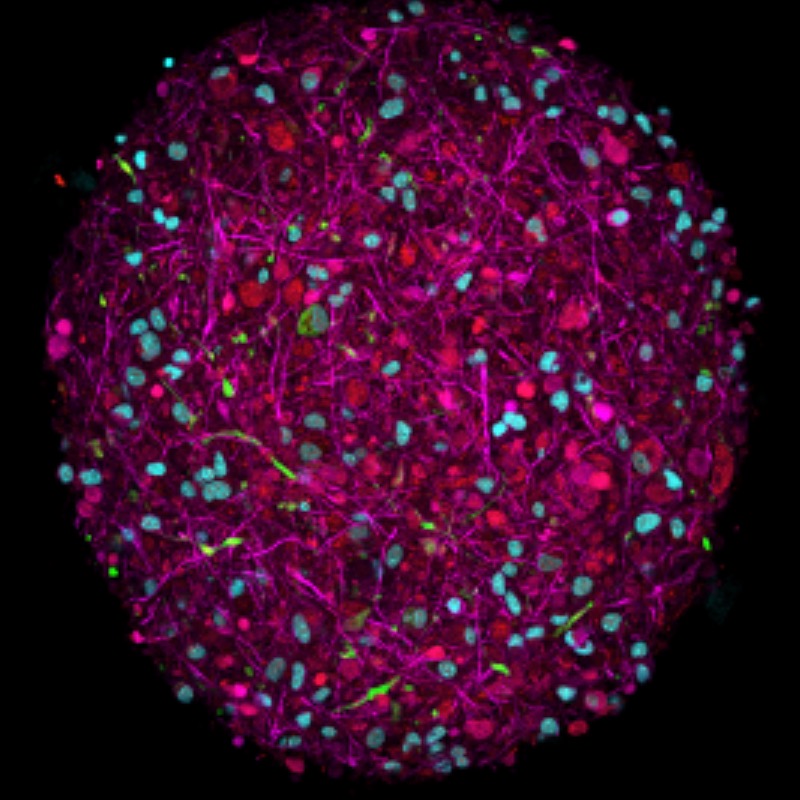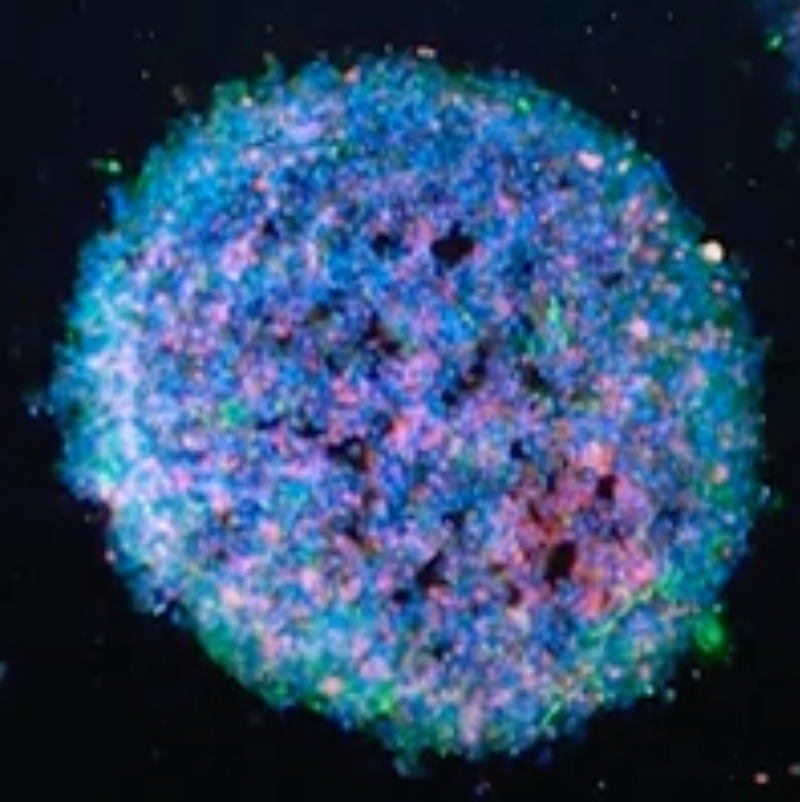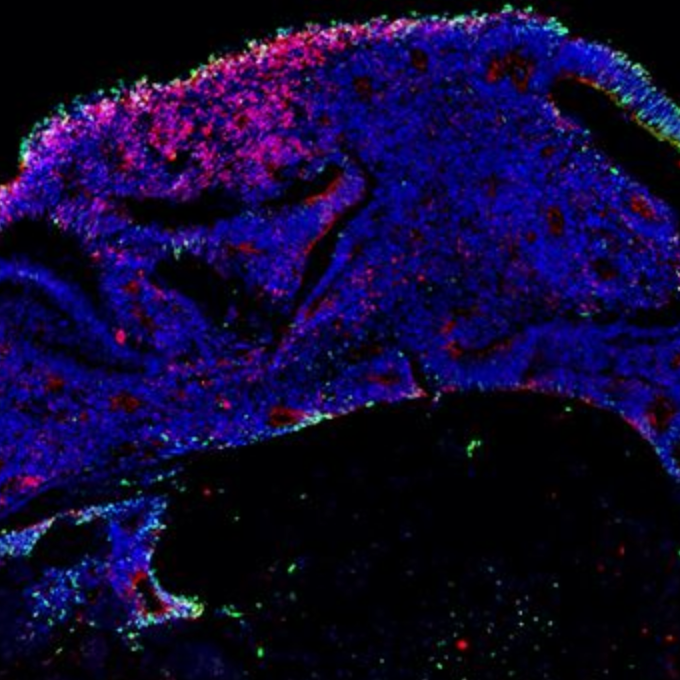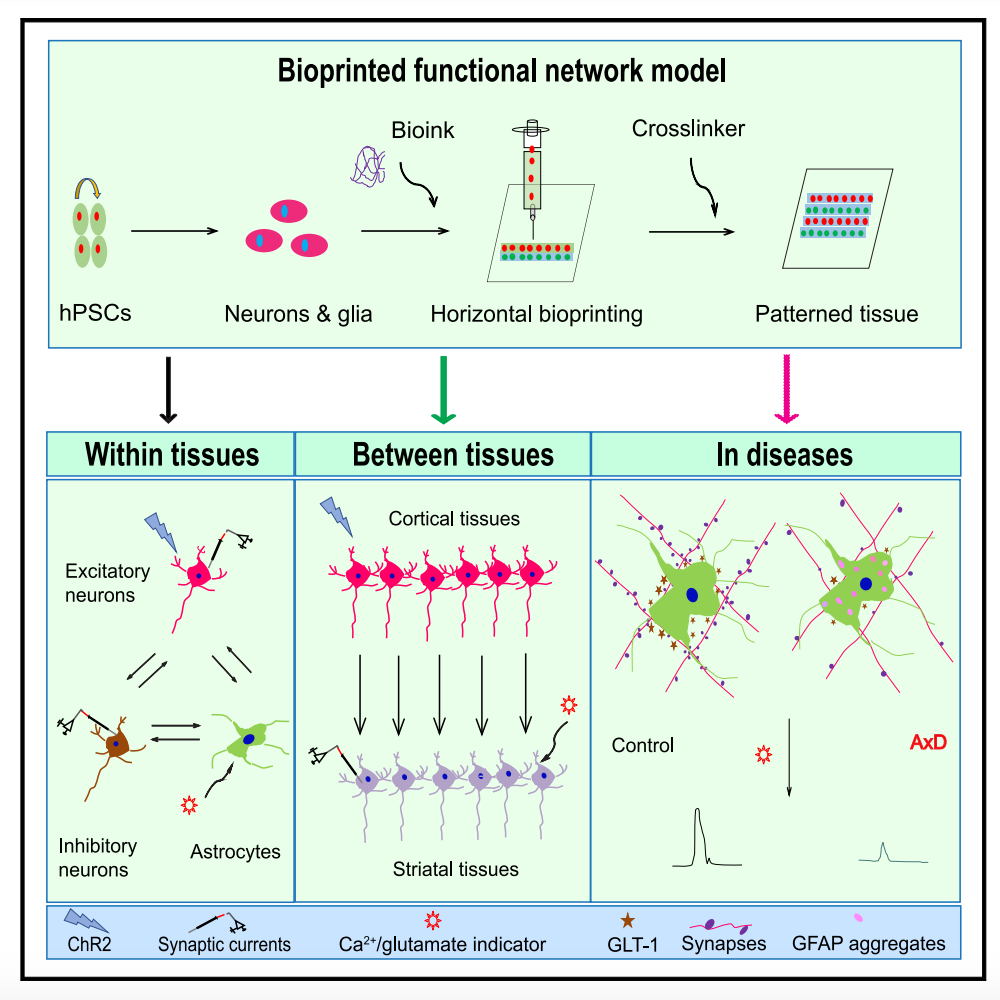New brain-organoid research helps develop treatments for brain diseases
May. 17, 2023.
2 mins. read.
7 Interactions
Replaces monkeys in animal experiments
As we reported in March, scientists are planning to create biocomputers powered by lab-grown human brain cells called “organoids.” They could serve as “biological hardware” to achieve “unprecedented advances in computing speed, processing power, data efficiency, and storage capabilities with lower energy needs.”
But now we’re looking at the original purpose of organoids: research that focuses on understanding the role of genes in brain development. The goal: develop treatments for serious brain diseases by either “knocking out” or activating individual genes, and then drawing conclusions about the the role of these genes in brain development. And to avoid animal experiments as far as possible, brain organoids are used as an alternative to monkeys.
Stem cells reprogrammed as neurons
Brain organoids are grown in the laboratory from induced pluripotent stem cells. These cells are usually derived from skin or blood cells that are “reprogrammed” so that they regress to stem cells and can then differentiate into any other cell type, such as neurons.
“We are particularly interested in the genetic factors underlying brain development in primates,” explains Michael Heide, head of the Junior Research Group Brain Development and Evolution at DPZ and author of the study. “The brain organoids allow us to reproduce these processes in the Petri dish. To do that, however, we need to genetically modify them,” he explained in a statement.
Faster brain-disease research procedure
Until now, these procedures were sometimes very labor-intensive and took several months. The team of researchers led by Michael Heide has now developed a fast, cost-effective method.
“We use microinjection and electroporation for our method,” said Heide. “In this process, genetic material is injected into the organoids with a very thin cannula and introduced into the cells with the help of a small electrical pulse. It takes only a few minutes, and the brain organoids can be analyzed after a few days.”
“The method is equally suitable for brain organoids from humans, chimpanzees, rhesus macaques and common marmosets,” says Heide. “This allows us to perform comparative studies on physiological and evolutionary brain development in primates and is also an effective tool to simulate genetically caused neurological malformations without having to use monkeys in animal experiments.”
Citation: Tynianskaia, L., Eşiyok, N., Huttner, W. B., Heide, M. Targeted Microinjection and Electroporation of Primate Cerebral Organoids for Genetic Modification. J. Vis. Exp. (193), e65176, doi:10.3791/65176 https://www.jove.com/t/65176/targeted-microinjection-electroporation-primate-cerebral-organoids (23).
Let us know your thoughts! Sign up for a Mindplex account now, join our Telegram, or follow us on Twitter.


.png)

.png)


.png)









0 Comments
0 thoughts on “New brain-organoid research helps develop treatments for brain diseases”